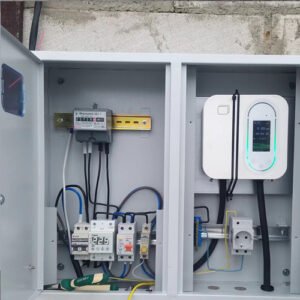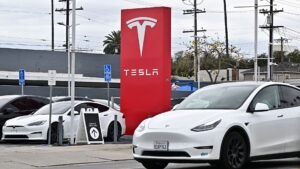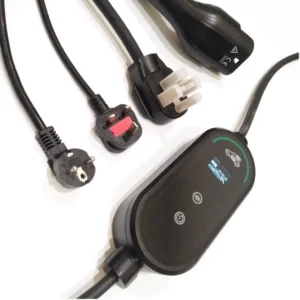About AC EV Chargers
Inside the car there is a converter (on-board charger) that is responsible for converting the Alternating Current (AC) power from the power station into Direct Current (DC) power to charge the car. This is the most common type of charging, so in addition to AC car chargers, outlets like ours also use AC power.
About DC EV chargers
It happens to be different from AC EV chargers in that it doesn’t need to go through the car’s internal converter to convert AC to DC, but instead does this before it is transferred to the car’s interior. DC chargers therefore charge faster and take less time to charge.
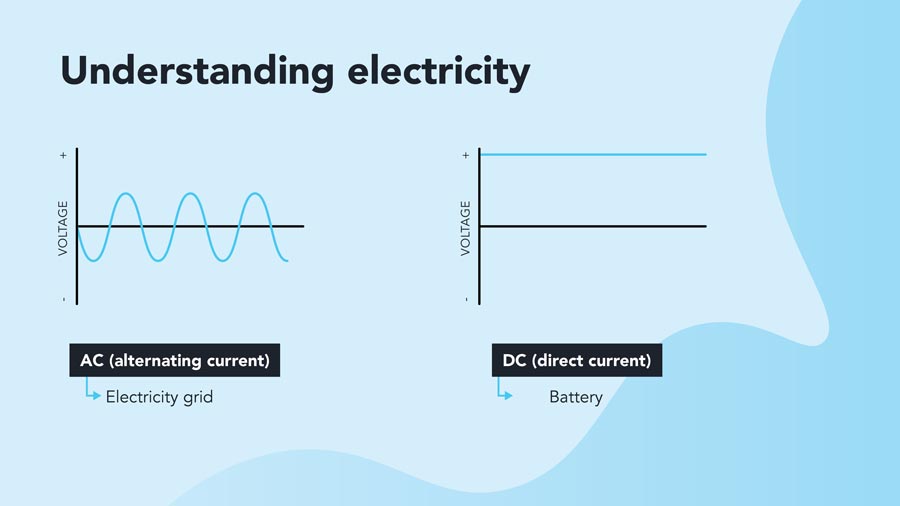
What is the difference between AC and DC charging for electric vehicles?
AC charging and DC charging for electric vehicles are distinctly different in many ways, so let’s take a look:
Different charging principles
Charging via an AC EV charger must be done by converting the AC power to DC power via an on-board charger inside the car, whereas an AC EV charger can charge the DC power that has been converted externally directly into the car battery.
Charging Power Differences
AC charging is far less powerful than DC charging because of the additional conversion process in an AC charger. AC is limited by the capacity of the car’s converter, so it has a maximum output of 22kw, while DC has a maximum output of 350kw.
Charging Time Differences
Since the AC has a much lower output, the charging time is also much slower than a DC EV charger. As to how much slower it will be, it depends on the actual power output to measure. For example, if DC can directly output 22kw, while AC can only output 7kw, then AC charging is 3 times slower than DC charging.
Installation Cost Comparison
The output of AC is simple, so an ordinary home charging post can meet the conditions, while the output of DC is more complex and requires more advanced charging posts, so its construction cost is much higher.
Grid requirements
AC charging has lower requirements on the grid, so it can be installed by individuals, while DC charging involves much higher requirements, so it is usually used by businesses or dedicated charging sites.
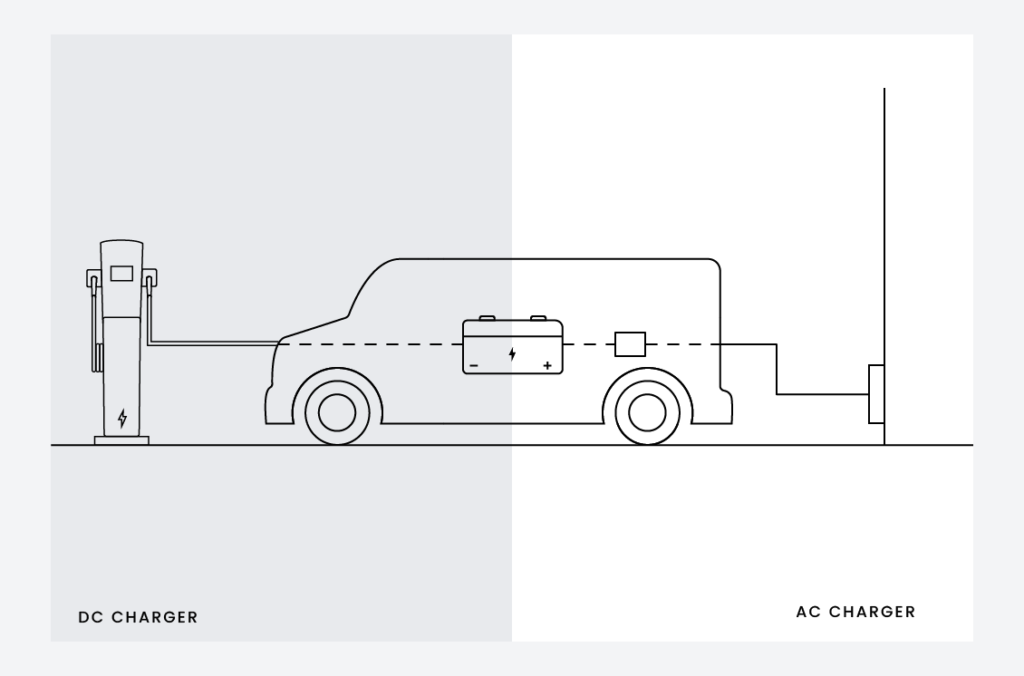
Which EV charger is better, AC or DC?
With this question, we need to take into account the differences in usage scenarios. If you are mainly using it for everyday travel, then obviously an AC car charger is the better choice. If you are traveling long distances or have a low battery that needs to be recharged, then you should prioritize a DC EV charger. It can be a quicker solution to your immediate problem.
It is worth mentioning that DC charging is simple and brutal, but more likely to affect the battery, while AC charging is gentle and delicate, and less likely to affect the battery, so except for special circumstances, it is still more suitable for AC chargers.
In order to make it clear to readers, we have compiled a detailed comparison table of DC chargers and AC chargers.
| Detailed comparison table of DC chargers and AC chargers | ||
| Comparison | DC charger | AC Charger |
| Picture |  | 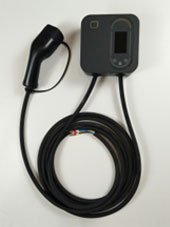 |
| Power (KW) | 20KW-960KW | 3.5KW-40KW |
| Input Voltage | 380V AC | 220V AC OR 380V AC |
| Charging principle | Power Supply – Pile (AC-DC) – Battery | Power supply-pile (AC-AC)-on-board charger of EV -Battery |
| Charging Speed | Fast, 1–2 hours | Slow, 7–10 hours |
| Start Option | code scanning, card swiping, password, VIN, remote Control | code scanning, card swiping, Bluetooth, plug and Charge |
| Pile-Vehicle interface data | BMS and battery data can be viewed in real time on the vehicle, APP, and charging station | Unable to view battery related data |
| Compatible models | Models with DC charging port (most pure electric models have DC charging port, except hybrid vehicles and some A00-class models) | Vehicles with AC charging ports (most passenger cars have AC charging port, general buses, logistics vehicles, and special vehicles do not have AC charging function) |
| Protection level | IP54,JP55 | IP55 or Higher |
| Noise | 60-80db | None |
| Installation | Complex installation: including wall-mounted, column-mounted, floor-standing, mobile, etc. | Including wall-mounted, column-mounted, portable, etc. |
| Size | Large volume, usually around one cubic meter, weighing more than 50kg | Small in size, generally about the size of A4 paper or slightly larger, weighing about 5kg |
| scenarios | Public operations, public transportation, logistics, etc. | Residential areas, shopping malls, office spaces, parks, etc. |
| Price | 3k-20k$ | Less than 600$ |
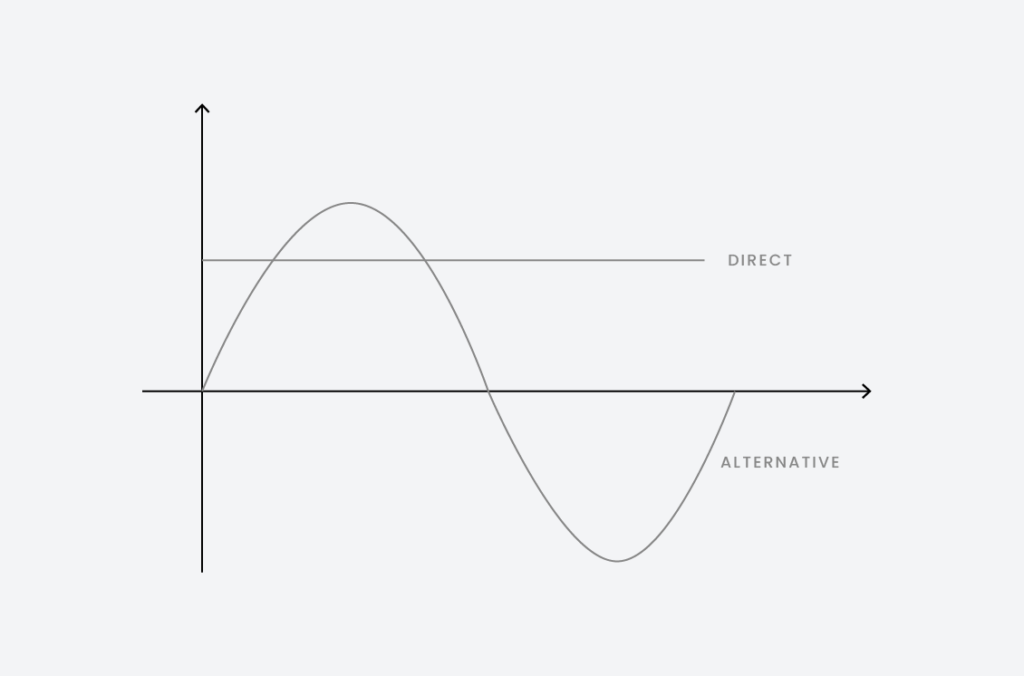
Should I use AC or DC for my home electric car charger?
Due to the safety concerns associated with DC power and grid requirements, home EV chargers can only use AC power, and the rated power will not exceed 7.4kw. If you need a higher AC output, you will need to apply to your local grid company and install a three-phase power supply in a suitable location to support a higher power output.
Summarizing
- Regardless of whether the EV charger used is AC or DC, the EV is ultimately stored in the battery as AC power.
- The biggest difference between an AC EV charger and a DC DV charger is that an AC EV charger needs to be converted by an on-board charger inside the vehicle, whereas a DC DV charger does this externally without the need for an on-board charger.
- All things considered, AC car chargers are more cost-effective and more applicable.
- Home electric car chargers can only use AC power, while public charging stations can choose either AC or DC power.


